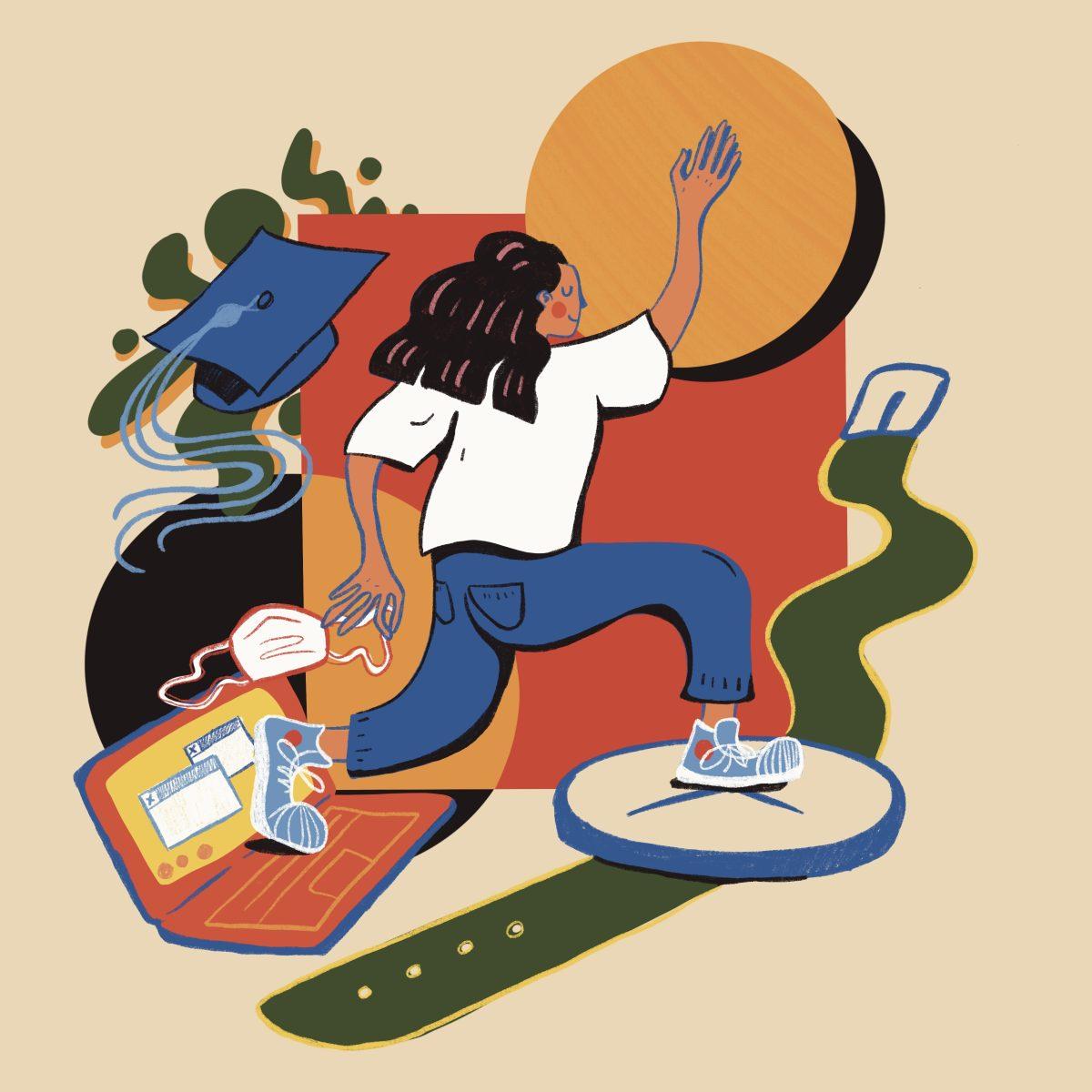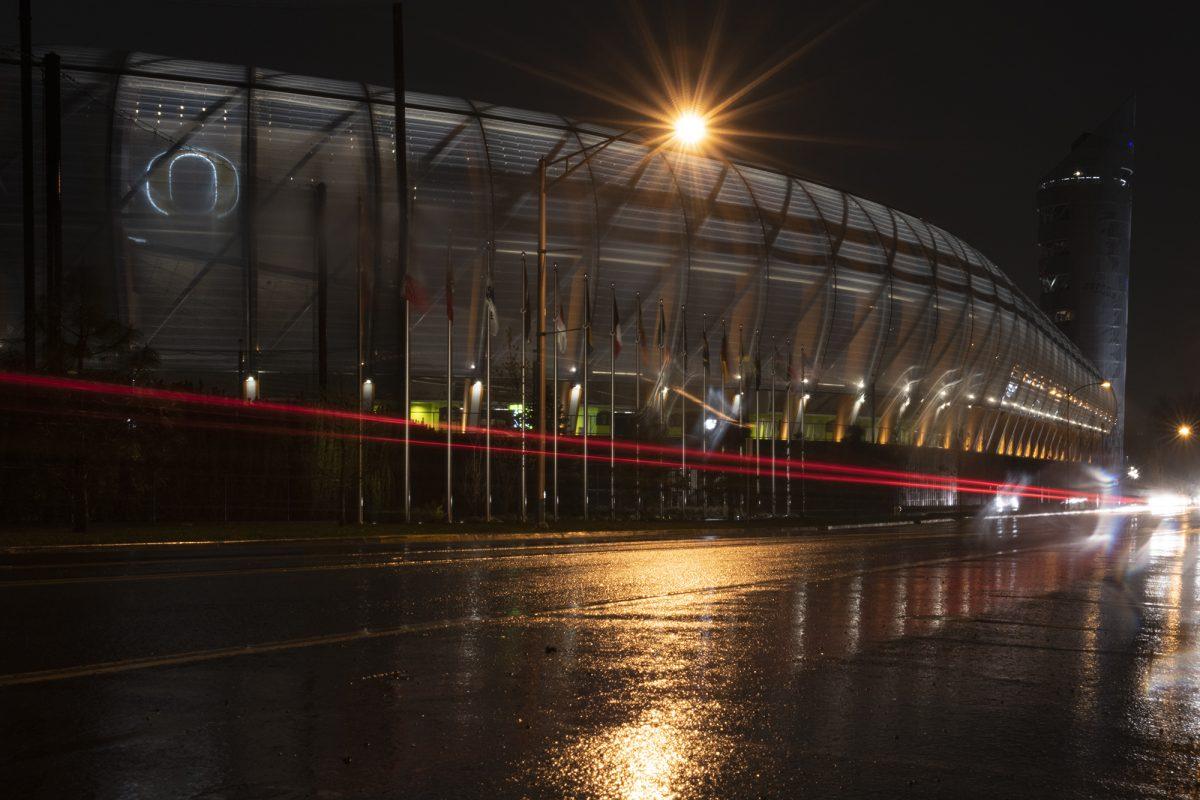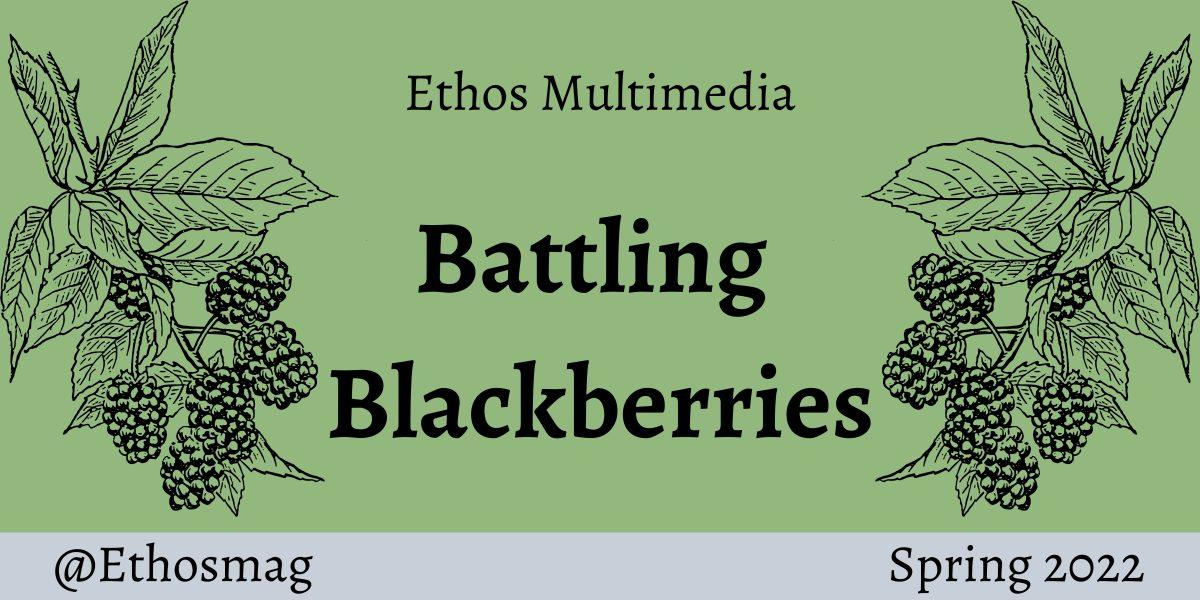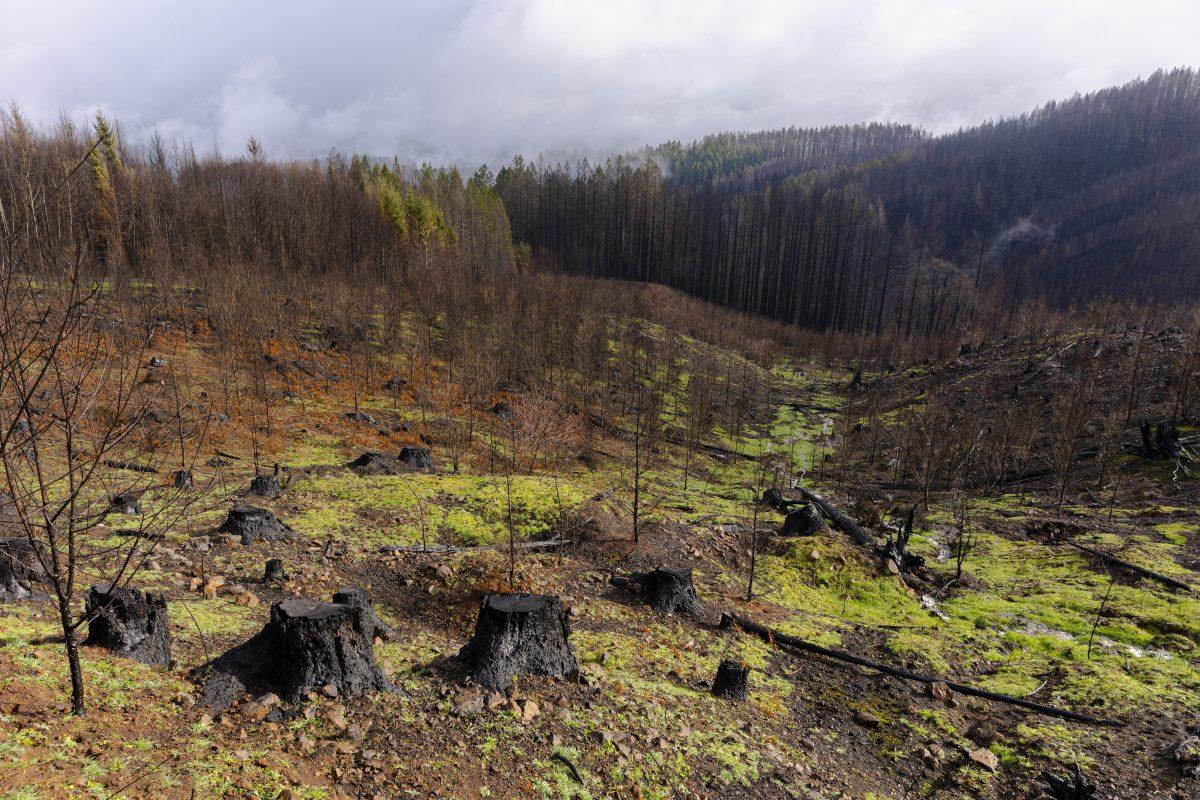Weary-eyed, academically exhausted and confronted with the reality of a global pandemic, Tess Murphy logged onto Zoom once more. She had decided to stay back in her small hometown in Pennsylvania as former President Trump announced a state of national emergency due to a novel respiratory virus: SARS-Cov-2, more commonly known as COVID-19.
“I remember really vividly going home at the end of winter thinking, ‘Oh yeah, it’s only gonna be three weeks away from school,’ just like everyone else thought,” Murphy, a University of Oregon student who took a gap year during the 2020-21 academic year, says.
In spring of 2020, the University of Oregon informed its students that the rest of spring term classes would be held online. Murphy anxiously stayed back in her small hometown after spring break. What was originally a visit home turned into a three-month relocation full of online classes and uncertainty.
Buildings became ghost-like and empty, restaurants shut down and workplaces went virtual. According to a UNICEF report published in March 2021, 150 countries completely shut down their schools. COVID-19 disrupted the routines, jobs and friendships of students across the globe.
“As young people, we already have so much going on and existential dread and figuring out what we’re doing, but then you throw in a hammer like COVID, and it just doubles it,” Sienna Ross, a journalism and political science student at New York University, says.
Whether coming from NYU, UO or any college in between, students were forced to contemplate major changes in their career paths . The UO’s Institutional Research page shows a decrease in enrollment at UO after the start of the pandemic. The 2020-2021 academic year had almost one thousand fewer students enrolled than the previous year. Many students found themselves changing their graduation plans, career paths or schools because of the global pandemic.
Over the past term, I talked to four college students who experienced this dramatic shift. Tess Murphy, Sienna Ross, Merc Heredia-Ferran and Katie Mayer all had to navigate the new reality of a shifting college experience.
Murphy knew immediately after the spring term of 2020 that she wanted to take a gap year.
“I just remember thinking at the end of that term, ‘I cannot do this next year.’ I didn’t do well academically. I didn’t feel like I was learning anything,” Murphy says.
As someone who had taken online classes in high school, Murphy instantly recognized where UO was lacking. Professors, required to restructure entire courses, were overwhelmed.
“It was, I think, my most difficult term of teaching in the time that I’ve taught, and I’ve been teaching for about 15 years,” Emily Simnitt, a Senior Instructor at the UO who teaches community engagement, scientific writing and technical writing, says. “There was just so much built up anxiety for myself and my family. I felt anxiety and concern for students.”
Not only was it challenging academically, but online classes completely excluded the social aspect of attending a university. Murphy and her friends tried to keep in touch via Zoom, but that slowly died out. It wasn’t the same.
“For me, I think college is the academics, but it’s also the social life and it’s going to the Rec, and being on campus, and that’s what you’re paying for. You’re not just paying for academics,” Murphy says.
Lacking social connections and experiences was a main reason why Ross, like many students, struggled with online learning. As a recent transfer student from Pitzer College to NYU, she was unable to meet people on campus, making her first experience at NYU extremely isolating.
“There was this air of ‘Oh my god what am I doing with my life.’ I felt so bad. I felt like I was wasting my parents money because I was doing terribly,” Ross says.
Struggling academically and grappling with the mental health effects of a global pandemic, while also paying what both students viewed as excessive tuition for online courses, Murphy and Ross took initiative to postpone their academic plans. Murphy pursued a gap year while Ross took NYU’s spring semester off.
“I was punishing myself a lot because there’s this mentality of ‘You need to finish school on a standard track.’ All your friends are doing it quote-on-quote ‘the right way.’ Now I know that there is no ‘right way,’” Ross says.
During her semester off, Ross felt a huge sense of relief. She got a job at Trader Joe’s and was able to create connections in her community.
“It was good money. I met some people, ended up meeting a lot of friends and I met my boyfriend, so that semester off was a time to reset both mentally and emotionally,” Ross says.
Murphy also pursued work experience during her year off. She secured a job as an elementary school teacher and worked for the Biden campaign in the fall of 2020.
“During my gap year I definitely learned that I was more capable than I thought I was. Especially when it came to work,” Murphy says. “I got a really good job without a college education, and I was really good at it, and I really enjoyed doing it. It really gave me a sense of ‘Wow, I can be an adult in the real world.’”
Yet, being forced into adulthood due to a global pandemic came with its own toll. Staying at home with her parents, Murphy found it difficult being away from people her age, especially her friends. The person who cut her family’s lawn was the only person remotely close to her age that she saw.
“Before the pandemic I was ‘school, work’ all the time and that was my life. That was what I chose to spend all my time on. Looking back during my gap year, it made me wish that I hadn’t spent so much time on schoolwork but had spent more time living my life,” Murphy says.
Now re-enrolled, Murphy has shifted her focus to embrace more balance between her academics and her social life.
“I’m still focused on getting good grades, but it isn’t my top priority right now. My top priority is spending time with my friends that I missed so much time with, going outside, having adventures,” Murphy says.
The experience made Murphy question her previous perception of a college degree. Not only was she able to successfully get a job without a degree, but she realized how unnecessary the amount of academic pressure she originally put on herself was. Connection and social interaction can be just as valuable, according to Murphy.
“COVID makes you realize how much you miss life,” Murphy says.
Heredia-Ferran, similar to Murphy, shifted their view of a college education as they also underwent changes in their career path due to COVID-19.
“At the end of the day, education is 100% up to you, and I think I have devalued what a bachelor’s degree and a master’s degree really is because it’s a piece of paper,” Heredia-Ferran says.
Heredia-Ferran graduated from University of Illinois in the spring of 2021. As an undeclared major until their junior year, Heredia-Ferran only got one term of focused classes before the pandemic. They felt ill-equipped to move into a professional job by the time they graduated. To combat this, they applied to the UO’s graduate program in advertising to gain more experience.
While many UO classes have returned to in-person learning, Heredia-Ferran’s have stayed online due to their small sizes. Especially as a graduate student, they have been frustrated with the lack of depth in discussion and student interaction that is able to occur on Zoom.
But, if anything, Heredia-Ferran has learned to take charge of their own learning during online classes, especially since they are paying out-of-state tuition for grad school.
“Taking charge of my own learning has been something that I’ve always struggled to do but have somewhat learned to do during this pandemic,” Heredia-Ferran says.
According to Heredia-Ferran, knowing their desired end goal and pursuing internships and experiences outside of the classroom have helped them navigate their career and secure jobs.
“Learning stuff outside of the classroom is, I think, the most important thing you can do before getting a job. Not getting too stuck on the grades and the classes is probably my biggest tip. The grades and the class honestly don’t matter as long as you are learning what you want to learn,” Heredia-Ferran says.
For UO student Katie Mayer, adjusting to online learning was extremely difficult. She struggled with intense academic burnout and the feeling of isolation that came with being stuck in her room, as social distancing requirements took on each state.
After a brutal term, Mayer decided to get an EMT license during summer of 2020 to build her resume for medical school. Once she graduated, she began to search for useful applications, later finding out that Eugene’s rural fire department takes EMT volunteers.
Ready with questions, Mayer gave them a call. She found that in order to volunteer, she had to graduate through the fire academy as well, something that had never been a part of her original plan.
Despite having preconceived notions of firefighters being burly, tough and traditionally male, Mayer, 5’10 and lanky, decided to go to the fire academy.
“It was the hardest thing I’d ever done, but I was able to do it and I slowly fell in love with it. I loved the challenge,” Mayer says.
Every six days she would work either a 12 or 24-hour shift alongside being a full-time student.
Two years later, after finding a strong sense of place at the fire station, Mayer plans to finish her degree and to continue working towards becoming a firefighter paramedic.She is currently enrolled as a full-time student while working a 48-96 schedule, entailing two days on and four days off at the fire station, and additionally helping on an ambulance through the city of Eugene.
This experience has caused Mayer to also question the value of a college education during a pandemic.
“I used to think that college was the only viable option to have a good paying job,” Mayer says.
Mayer’s work at the fire department has taught her otherwise. Especially working alongside other individuals with non-traditional career paths, she recognized how detrimental and unnecessary the pressure students put on themselves is. Some of her coworkers are returning to school after years of a break; others never went to college.
“You are so young, and being in your early 20s, it feels like a lot of people around you have it figured out and that they are setting their goals, but you really have so, so much time,” Mayer says.
Murphy reached a similar conclusion, emphasizing that, no matter the circumstance, students are all navigating the pandemic in a different way, each way as valuable as the next.
“If you had to change your college plan because of COVID, that doesn’t make you any less of a person or any less of a student. I’ve definitely been struggling with feeling like a little bit of a failure because I took time off,” Murphy says. “At the end of the day, it really doesn’t matter. What matters is you go at your own pace and you get an education that is meaningful to you, not others.”





![[Photo Courtesy of the Lara Family]
Ruben embraces his beloved childhood goat, Katrina.](https://ethos.dailyemerald.com/wp-content/uploads/2025/05/katrina-1-1060x1200.jpg)





